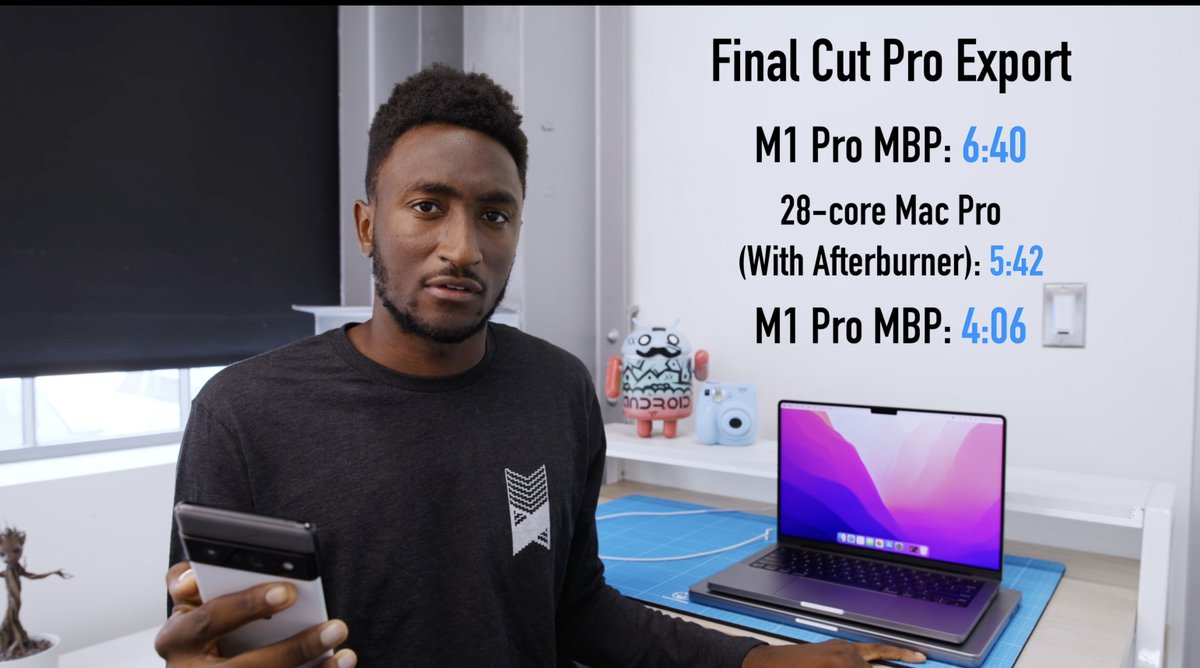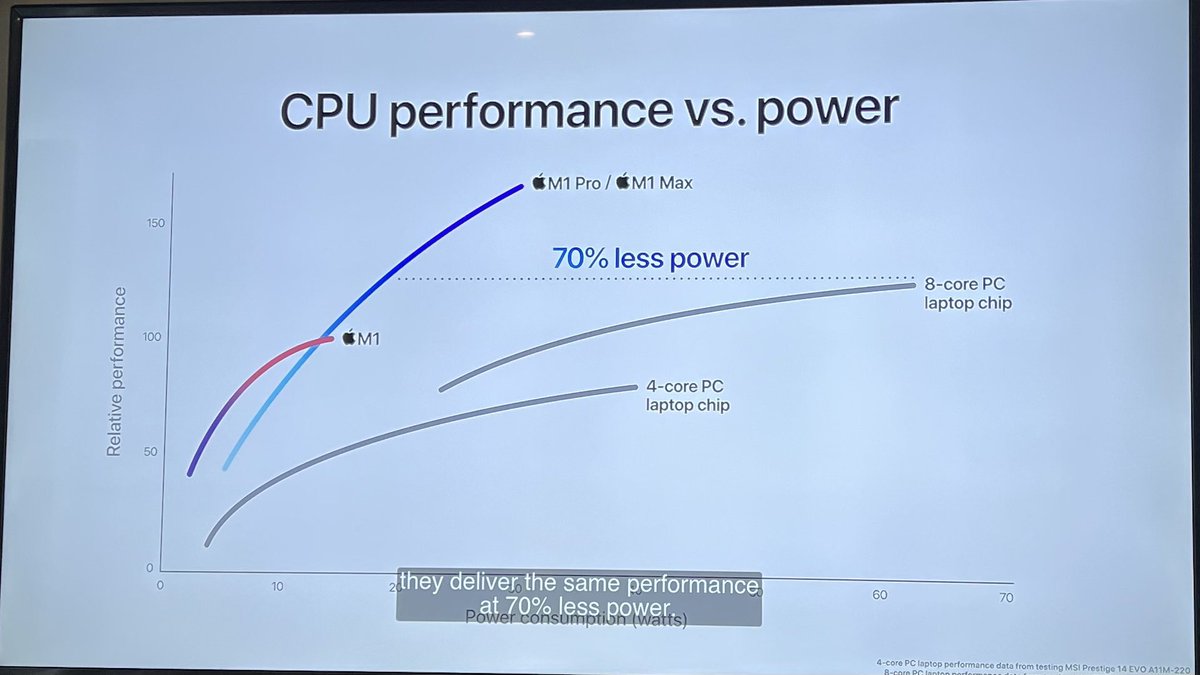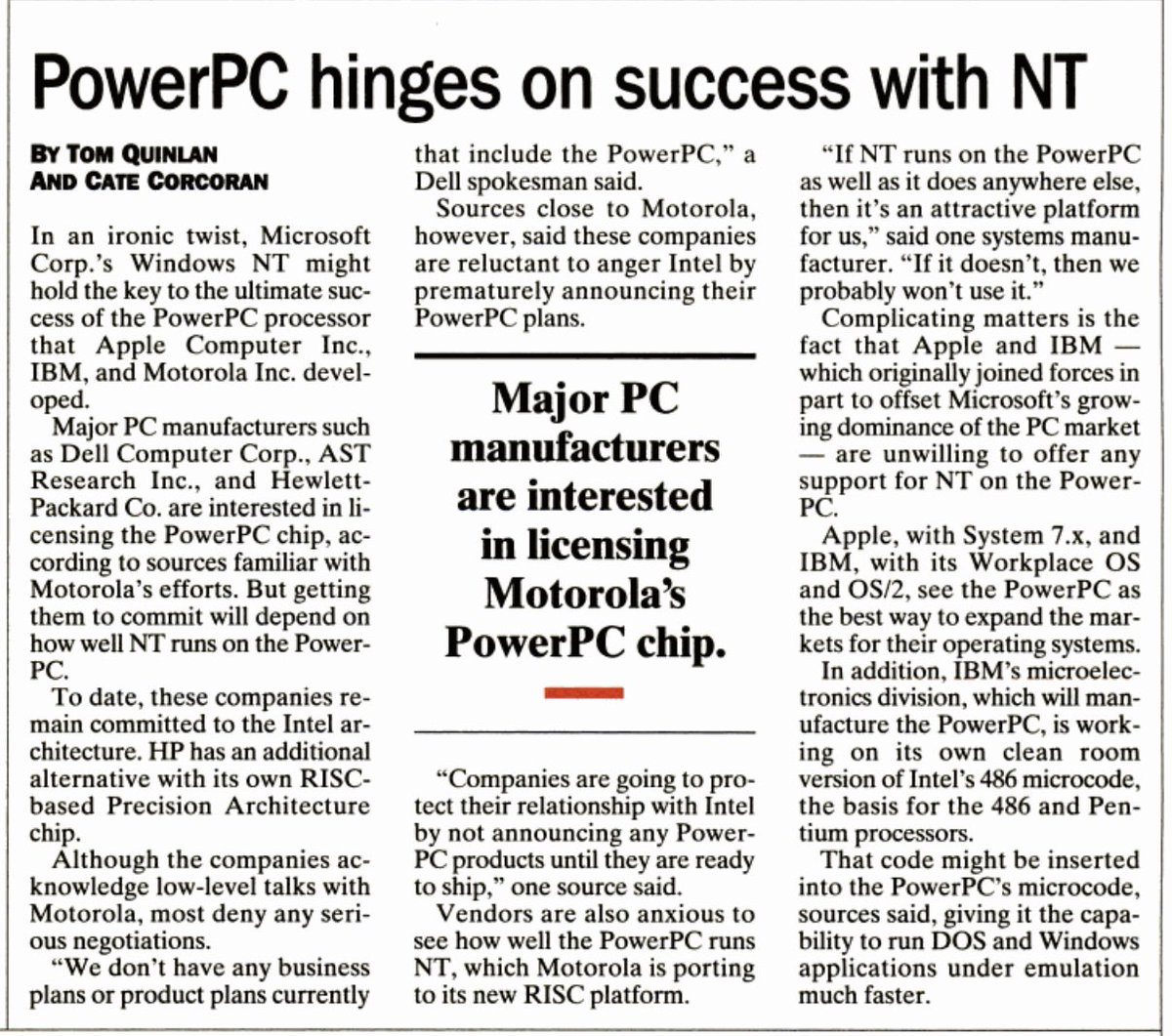
M1 Max MacBook Pro Review: Truly Next Level! // Definitely watch this review by @MKBHD who does a fantastic real world and "totally understands the product" review, not a rush or fast take, but real world use.
2/ Watch the review but some things to call out
• "never heard the fans spin up audibly"
• "could have had higher end ports"
• "could have had ethernet on powerbrick"
• "effectively a mini Pro Display XDR"
• "best speakers on any laptop"
• "never heard the fans spin up audibly"
• "could have had higher end ports"
• "could have had ethernet on powerbrick"
• "effectively a mini Pro Display XDR"
• "best speakers on any laptop"
3/ Best analysis: the notch. I feel other reviewers should take note.
• "easy to complain when you're not using it"
1) "seems like it is part of the design language"
2) "ok to put the notch there as you don't really notice"
• "Cuts into display area you _didn't_ have before"
• "easy to complain when you're not using it"
1) "seems like it is part of the design language"
2) "ok to put the notch there as you don't really notice"
• "Cuts into display area you _didn't_ have before"
4/ While he did all sorts of run throughs of synthetic benchmarks and micro benchmarks, the review is also based on his experience editing 100% the previous review (AirPods). All on battery :-)
Even faster than these times with high-performance enabled.
Even faster than these times with high-performance enabled.

5/ Also he references/credits other reviewers for the points they called out and the benchmarks they ran which is super cool.
In general, this is how to do a review. The review is "next level". // END (any mistakes in transcription are my note taking errors)
In general, this is how to do a review. The review is "next level". // END (any mistakes in transcription are my note taking errors)
• • •
Missing some Tweet in this thread? You can try to
force a refresh


















